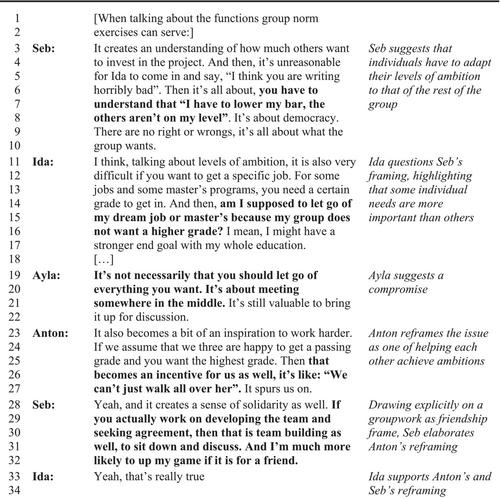How do students negotiate groupwork? The influence of group norm exercises and group development norms
Abstract
Background
Group norms in engineering education groupwork are usually negotiated in an implicit and often unequal manner. Although it is regularly suggested that student groups can function better if norm negotiations are, instead, made explicit, the social dynamics of group norm exercises have remained underexplored.
Purpose
We investigate how students negotiate group norms in group norm exercises, including the different understandings of groupwork that they construct and draw from to facilitate their negotiations.
Method
We recorded and analyzed a sequence of three group norm exercises focused on developing a team charter, with seven participating student groups. Drawing on framing theory, we study negotiation sequences in terms of framing practices, and understandings of groupwork in terms of activity frames.
Results
Our findings suggest that group norm exercises can help students to coordinate their expectations and transform previously established norms. However, they may also be approached in such a way that students are discouraged from questioning established group norms, instead resolving disagreement by simply rejecting alternative perspectives. We introduce the term “group development norms” to explain these dynamics, showing that the question of how to develop group norms is in itself a subject for negotiation.
Conclusions
Providing a forum and process is neither enough to ensure reflective and equitable negotiations nor transparent and inclusive group norms. To avoid that group norm exercises simply reaffirm dominant norms, students should be provided with explicit negotiation strategies and, ideally, direct facilitation.


 求助内容:
求助内容: 应助结果提醒方式:
应助结果提醒方式:


